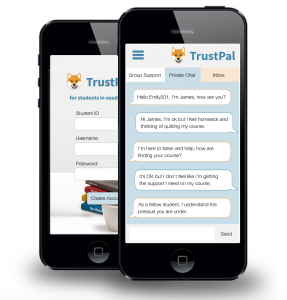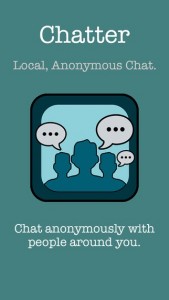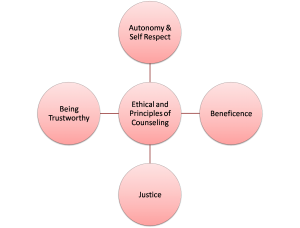Since our project is aimed at University of Southampton students (with the possibility of extending to other universities in the future), looking at what services are already provided by the University help understand what students already have access to, and what might be lacking.
The University of Southampton provides a variety of services for students meant to help with a wide variety of issues and concerns [1]:
– Enabling services: this is the counseling service provided on campus which has a professional team of qualified individuals trained in a variety of areas; besides classic individual counseling, it provides drop-in sessions between 1PM and 3PM every day during term time, and on Monday, Wednesday and Friday during holidays; groups and workshops on wellbeing, stress management, mindfulness etc.; self-help materials and support webpags [2]
– Nighline: part of the national Nighline project, it is a calling service where students can talk to volunteers about their problems; the Nighline volunteers are also students who have been trained for the position, but are not professionals; students can call between 8pm and 8am, and they can call for free from halls of residence; this service is intended for students. [3]
– The Advice Centre: free, independent and confidential advice; students can come in to talk about their problems; semi-qualified staff. [4]
– Residence Support: available for students living in halls of residence; offers general guidance for new students, such as help with halls life, university life, exams help, but also support with issues and other difficulties; since they have no training for health or emergency problems they will contact the relevant services on behalf of the student; they can be reached though email, phone or in person since there is someone from Residence support at every halls, between 6pm and 8am every day throughout term-time. [5]
– Peer Support: similar to Nighline, but students can arrange to meet volunteers in person (who are also students); they can meet anywhere on campus at any time, generally for one session but there is no restriction to continuing for several sessions; it provides an informal opportunity to talk abut issues and concerns. [6]
Besides the university provided services, on the official university mental health and wellbeing website [1] there are several external resources provided:
– Steps 2 Wellbeing, a group counseling service provided by NHS; it also provides an E-Clinic for all participants where they can get individual counseling online (either video call or message) [7] [8]
– italk: an Improving Access to Psychological Therapies (IAPT) service, sponsored in part by NHS, together with [9]
– Solent Mind: Hampshire’s largest volunteering organization for mental health support, which is available to Hampshire residents; it provided telephone counseling [10]
– SAM app: a mobile application which helps people track and manage their anxiety [11]
– NHS 111, a service for when you need immediate help but it is not a life-threatening situation [12]
– Accident and Emergency department, which should be visited is the person has any intentions for self-harm or suicide or cause harm to others [13]
– The Samaritans [14]
Out of all the services provided and recommended by the university, only three of them provide methods of getting in contact without calling or going in person: Residence support which can be emailed, the E-Clinic provided by NHS within Steps to Wellbeing and the SAM app. Furthermore, neither the emails to Residence support or E-Clinic guarantee a fast reply. Services are also limited outside term-time. Some points which should be considered when looking into ways of improving the services for students are:
– phone calls cost (except if a student calls Nightline from a halls of residence);
– some individuals might not feel comfortable calling; verbally expressing one’s concerns can be challenging;
– it can be difficult to get the correct phone number for a service without internet access or on mobile devices;
– provide suitable support outside term-time.
Application to TrustPal
There is a gap in the services provided by the university, namely the lack of any services where students can write (text, message) rather than call or physically go to. A writing-based wellbeing application such as TrustPal, whether mobile or as a website, would eliminate the costs of phone calls, would provide more anonymity, and would make students who are not comfortable calling or going in person to a service more likely to use it and get help or support. Additionally, it will remain on their device, while phone numbers can be easily lost unless they are saved. A mobile application or website can also remain functional outside term-time, or throughout the day, which would improve on the poor accessibility of services outside term-time, and it has the added benefit that it can be used regardless of location as long as there is some form of Internet connection (such as from other countries, in which case calling can cost more).
Resources:
[1] University of Southampton Mental Health and Wellbeing website, http://www.southampton.ac.uk/edusupport/mental_health_and_wellbeing/index.page
[2] Enabling Services website, http://www.southampton.ac.uk/edusupport/index.page?
[3] Nightline, http://nightline.susu.org/
[4] SUSU Advice Centre, https://www.susu.org/help-and-support/advice-centre/2015/index.html
[5] Residence Support, https://www.southampton.ac.uk/accommodation/halls/supportingyou.html
[6] Peer Support, https://www.susu.org/help-and-support/peer-support/2013/index.html
[7] Steps 2 Wellbeing, http://www.steps2wellbeing.co.uk/
[8] Talking Sense, E-Clinic part of Steps 2 Wellbeing, http://dorset.talkingsense.org/
[9] iTalk, https://www.italk.org.uk/
[10] Solent Mind, http://www.solentmind.org.uk/
[11] SAM mobile application, http://sam-app.org.uk/
[12] NHS 111, http://www.nhs.uk/nhsengland/aboutnhsservices/emergencyandurgentcareservices/pages/nhs-111.aspx
[13] NHS Accident and Emergency Department, http://www.nhs.uk/NHSEngland/AboutNHSservices/Emergencyandurgentcareservices/Pages/AE.aspx
[14] The Samaritans, http://www.samaritans.org/








